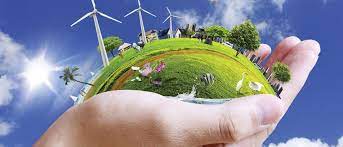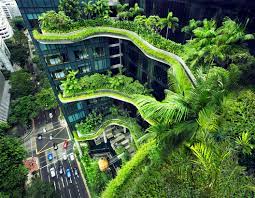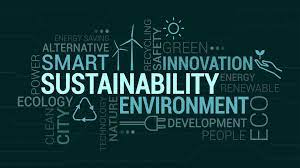In a world facing unprecedented environmental challenges, the urgency for sustainable living has never been more evident. The future of our planet hinges on our ability to adopt innovative solutions and embrace initiatives that prioritize environmental conservation and social responsibility. From cutting-edge technologies to grassroots movements, the landscape of sustainable living is evolving rapidly, shaping tomorrow’s world in profound ways.
Embracing Renewable Energy

One of the cornerstones of sustainable living is the transition towards renewable energy sources. Innovations in solar, wind, hydro, and other renewable technologies are revolutionizing the energy sector, offering clean alternatives to fossil fuels. Solar power, in particular, has seen remarkable advancements, with improvements in efficiency and affordability making it increasingly accessible to households and businesses worldwide. Initiatives promoting community-owned renewable energy projects are empowering local communities to take charge of their energy production, fostering a decentralized and sustainable energy infrastructure.
Green Building and Urban Design

The construction industry plays a significant role in shaping our environmental footprint. Green building practices and sustainable urban design are redefining the way we plan and develop our cities. From energy-efficient buildings with integrated renewable energy systems to urban green spaces that mitigate the urban heat island effect and promote biodiversity, architects and urban planners are prioritizing sustainability in their designs. Concepts like passive housing and net-zero energy buildings are becoming mainstream, setting new standards for environmentally conscious construction.
Circular Economy and Waste Reduction

In a linear economy, resources are extracted, used, and disposed of, leading to significant waste and environmental degradation. The shift towards a circular economy aims to minimize waste and maximize resource efficiency by promoting reuse, recycling, and regeneration. Innovations in materials science and product design are driving the development of eco-friendly alternatives to traditional materials, reducing reliance on finite resources and minimizing environmental impact. Initiatives promoting zero-waste lifestyles and circular supply chains are inspiring individuals and businesses to rethink their consumption patterns and embrace sustainable alternatives.
Sustainable Agriculture and Food Systems

The way we produce and consume food has profound implications for the environment and human health. Sustainable agriculture practices such as regenerative farming, agroforestry, and organic farming prioritize soil health, biodiversity, and ecosystem resilience. By reducing reliance on synthetic fertilizers and pesticides, sustainable farming methods mitigate environmental pollution and promote healthier ecosystems. Initiatives promoting local and organic food systems are fostering connections between consumers and producers, reducing food miles and supporting community resilience.
Technology and Innovation for Sustainability

Advancements in technology are driving innovation across all aspects of sustainable living. From blockchain-enabled supply chain transparency to artificial intelligence-powered energy management systems, technology is providing powerful tools for addressing environmental challenges. Smart grid technologies are optimizing energy distribution, electric vehicles are revolutionizing transportation, and precision agriculture is enhancing resource efficiency in food production. Open-source platforms and collaborative networks are fostering a culture of innovation and knowledge-sharing, accelerating progress towards a more sustainable future.
Conclusion
The future of sustainable living holds immense promise, fueled by a diverse array of innovations and initiatives. From renewable energy to green building, circular economy practices to sustainable agriculture, the collective efforts of individuals, communities, businesses, and governments are shaping tomorrow’s world in profound ways. By embracing sustainability as a guiding principle, we can build a future where environmental stewardship, social equity, and economic prosperity go hand in hand. Together, we have the power to create a more resilient and sustainable world for generations to come.


